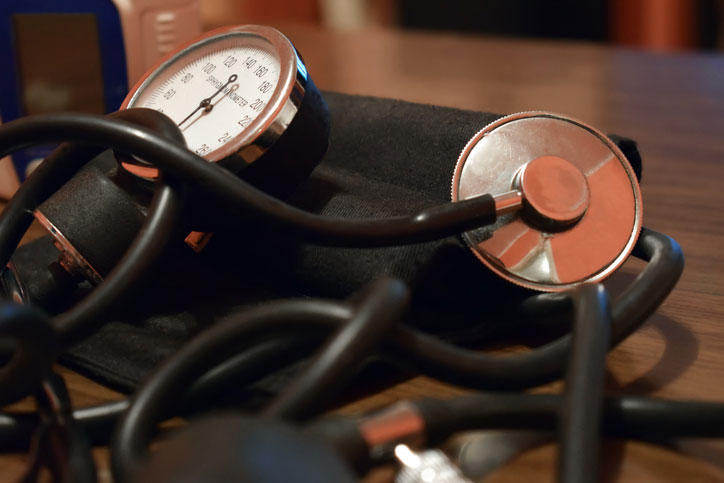
Known as the “silent killer,” hypertension does not necessarily present with symptoms; it often goes undetected, and therefore, untreated. The only way to determine if you have high blood pressure is to have it tested. Testing is both simple and painless and takes only a few minutes in a family medicine provider’s office.
Why is Hypertension Dangerous?
According to the Centers for Disease Control, high blood pressure increases your risk for a stroke or heart attack, the leading causes of death in the United States. About one in every three adults will suffer at some time from high blood pressure.
That number breaks down to around 75 million people living with high blood pressure in the United States. Of those, approximately half have gotten their hypertension under control. Roughly 1,000 people die in the US each day with hypertension listed as a primary cause. Not only can high blood pressure lead to a heart attack, chronic heart failure or stroke, it can also damage other organs–including the kidneys, eyes, and brain.
When is Blood Pressure Considered High?
Blood pressure is considered high if the systolic number, which measures the heart at work, is 140 mmHg or higher and the diastolic, which measures the heart at rest, is 90 mmHg or higher. Although high blood pressure does not always present symptoms, it can cause symptoms such as dizziness, facial flushing or blood spots in the white of the eye from broken blood vessels. Some patients with extremely high blood pressure may also notice the sound of their heart beating in their ears. You should never wait for symptoms to arise to act on high blood pressure. Get your blood pressure checked regularly by a family medicine provider instead.
Both men and women are equally likely to develop high blood pressure at some point in their lives. For those under the age of 45, the risk is greater for men than woman. Over the age of 65, women are more likely to have high blood pressure than men. Race and ethnicity also play a role in who is at risk for hypertension. African Americans, for instance, are more likely to develop high blood pressure at an earlier age than their Caucasian counterparts.
How is High Blood Pressure Treated?
High blood pressure can usually be managed by a combination of medication, diet and exercise. Reducing your intake of salt, walking on a regular basis and eating a healthy diet have all been shown to reduce the risks of having high blood pressure. Additionally, your family medicine provider may prescribe any number of different medications to lower your blood pressure. The kind of medication and dose will depend on the severity of your symptoms as well as how well you respond to, or tolerate, a given medication.
If you are concerned about how hypertension is affecting your heart and other organs, board-certified internal medicine specialist Dr. Ishan Gunawardene of Advanced Medical Clinic can help. He will take the time to talk to you, answer your questions and prescribe the necessary medications or lifestyle changes necessary to lower your high blood pressure. To make an appointment with us in Wellington or Royal Palm Beach, request an appointment online or call (561) 434-1935 today.

